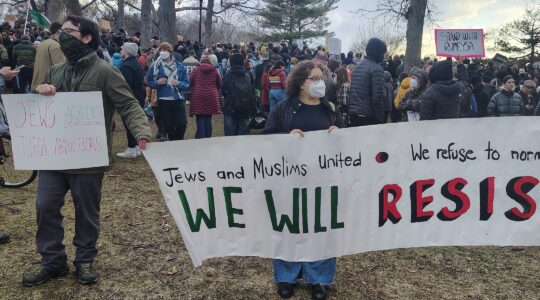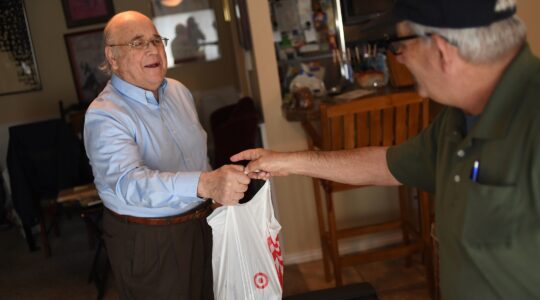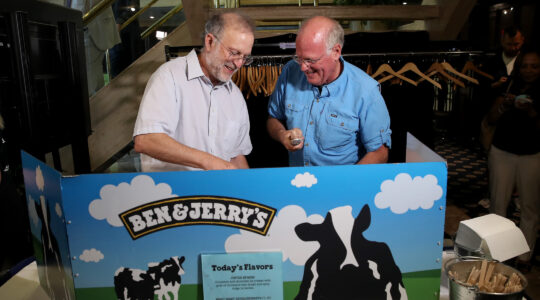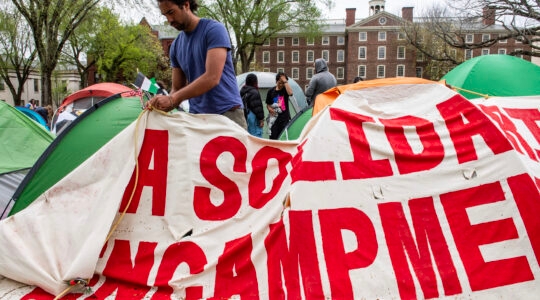WASHINGTON (JTA) — What’s a young Jew freshly landed in D.C. from Mobile, Manhattan or Marin County to do? Plenty, it turns out. Jewish outreach in the nation’s capital, which sees an influx of young professional Jews after each election cycle, is unrelenting. High Holidays services, Shabbat dinners, concerts and even happy hours are packed with the city’s growing pool of young Jewish professionals from across the country. The District of Columbia Jewish Community Center, in the capital’s youthful and bustling Dupont Circle neighborhood, is home to DCMinyan, a growing congregation of traditional young professional Jews who attend its Shabbat services, Shabbat dinners, study sessions and social events. DCMinyan is one of many congregations or organizations that have reached out to the district’s young Jewish professionals by offering more than a typical synagogue experience. At various synagogues across the city, religious services are now only half the story. “There’s really just so much out there for every type of Jew,” said Vicki Sitron, head of EntryPointDC GesherCity, which from its DCJCC headquarters serves as a conduit through which young Jews can meet one another and establish “clusters” based on their age and interests. “This is a very vibrant community that’s growing if you’re young and Jewish,” she said. “At one point there was a need for more organized activity, but now there’s just a breadth of things to do.” It’s a tactic also being employed at the newly restored Sixth & I Historic Synagogue, another main attraction for the young professional Jewish community. The synagogue draws Jews of all denominations through its range of religious services and more secular programming. Three groups, ranging from very liberal to very traditional, hold services at the Chinatown synagogue. Sixth & I events, which draw musicians, comedians and politicians, are routinely filled to capacity. Although Sixth & I attracts Jews of all denominations, the synagogue in particular reaches out to Jews who may not feel comfortable aligning with one particular thread and joining a typical synagogue. “As far as religious affiliation goes, Sixth & I is an attempt to meet young Jews where they are,” said Craig Sumberg, the synagogue’s president. “We work very hard to provide access and opportunity to people so they can see what they like and what speaks to them. We don’t want to be identified with any one stream of Judaism.” The approach seems to be gaining currency among the city’s young population. Samantha Luterman, 27, is one of the more than 3,500 registered members of EntryPointDC who have used the service to tap into a broad social network. Hailing from Mobile, Ala., Luterman formed her own cluster of southern Jews who meet regularly for everything from happy hours to Shabbat and potluck dinners. She also joined the Washington Hebrew Congregation, which through its “2239” program offers a menu of religious and nonreligious activities for young adults. Luterman, who works in marketing for a nonprofit group, says that Jewish associations also have been invigorated by a citywide culture of networking and engaging in activities or causes outside of work. It is in that capacity where Jews so often come into contact with one another, she said. “D.C. has a very large but tightly knit Jewish community,” she said. “This is a place where everyone seems to join things. People generally work 9-to-5 jobs and have the time for extracurricular activities.” According to Jewish officials, the volume of jobs related to public policy in the private and public sectors has long lured hundreds of civically active young Jews after each election cycle, every two years. That helps people like Melanie Maron, the new director of the American Jewish Committee’s Washington chapter, who aim to engage young Jewish professionals. “Washington has a very high concentration of educated and active people who are interested in national and international affairs,” she said, noting that the trend is particularly sharp among Jews. Several hundred of such Jews may be found working on Capitol Hill. Outreach efforts to bring them together have increased in recent years.”There’s a lot of networking going on” within the Jewish community, said Shelley Rood, 25, a legislative aide to Rep. Debbie Wasserman Schultz (D-Fla.). Rood serves as president of the Congressional Jewish Staff Association, which facilitates relationships among Jewish staffers. Elsewhere on the Hill, hundreds of Jewish staffers and lawmakers interact with one another through the Chabad-sponsored Capitol Jewish Forum, which holds study sessions and religious services. Chabad also holds 25 to 30 Jewish events each year on the Hill. “People are very approachable once they realize that they’re welcome for who they are without any prerequisite formalities,” said Rabbi Levi Shemtov, Chabad’s representative in Washington. “For someone to discover that just because they’re Jewish you want them involved can bring them closer much quicker than if they’re asked to participate in some appeal.”
JTA has documented Jewish history in real-time for over a century. Keep our journalism strong by joining us in supporting independent, award-winning reporting.





